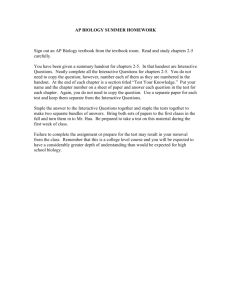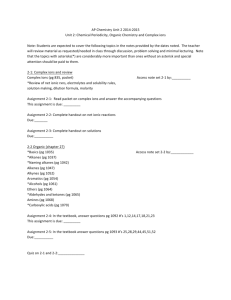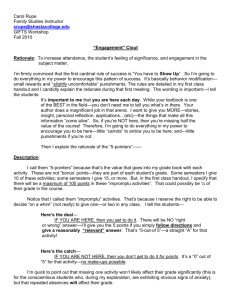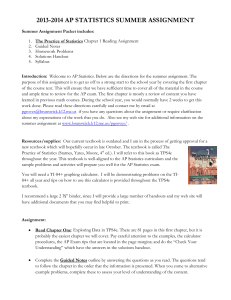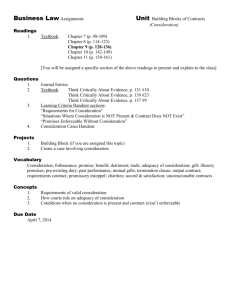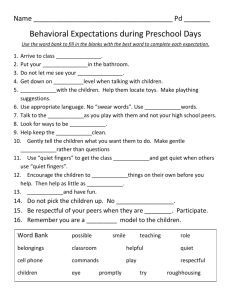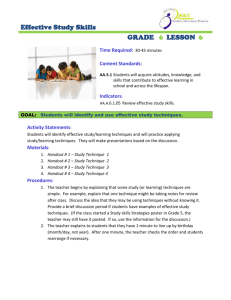handout 1(goals module) activities (2)
advertisement
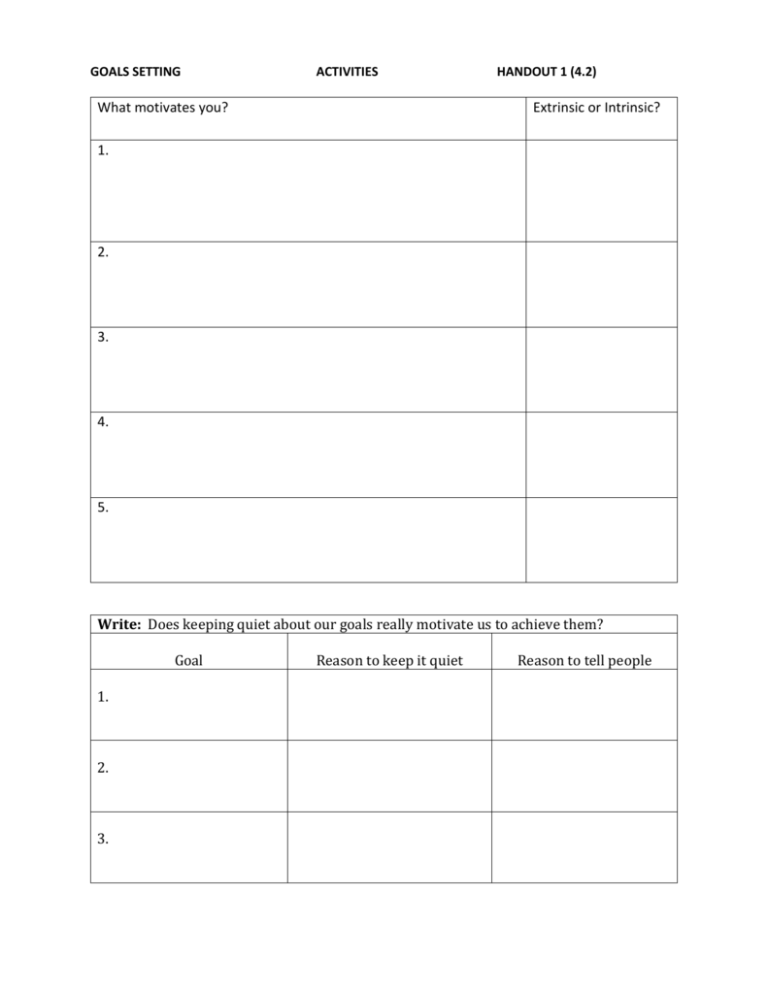
GOALS SETTING ACTIVITIES What motivates you? HANDOUT 1 (4.2) Extrinsic or Intrinsic? 1. 2. 3. 4. 5. Write: Does keeping quiet about our goals really motivate us to achieve them? Goal 1. 2. 3. Reason to keep it quiet Reason to tell people GOALS SETTING HANDOUT 1 (4.2) Characteristics of Effective Goals A common scheme for describing effective goals is the SMART mnemonic. While the terms attached to the letters sometimes vary, the terms we are using are as follows: S – Specific: Goals must be clear and precise. They cannot be vague or ambiguous. M – Measurable: Goals must be quantifiable, so you can measure and assess your progress. A – Attainable: Goals must be within your reach; they need to be realistically something you can achieve, yet they should require you to stretch yourself and grow to attain them. They should not be too easy. R – Relevant: Goals need to be connected to something important to you/your life; they should consistent with your values, your beliefs. T – Time-sensitive: Goals need to have deadlines; they need starting dates and target dates. A List of Short Term Goals for Math Class: Work three review problems each day to boost confidence Summarize what you learned in class today Write five questions on what you don’t understand in this chapter Recognize how much more math you know now than you did two weeks ago Review your class notes for last week’s material Quiz yourself on last week’s work using two problems from each section of the textbook Write down two problems each day that could be on the next math exam In class, mark in your notes what the teacher considers important Complete 90% of the homework with understanding Make an appointment to get help from a tutor, teacher, or counselor Mark where you don’t understand your textbook and ask questions in class Bring problems to class with questions Begin math study and homework problems within three hours after class (Derived from Managing the Mean Math Blues, Cheryl Ooten and Kathy Moore, p.17)


